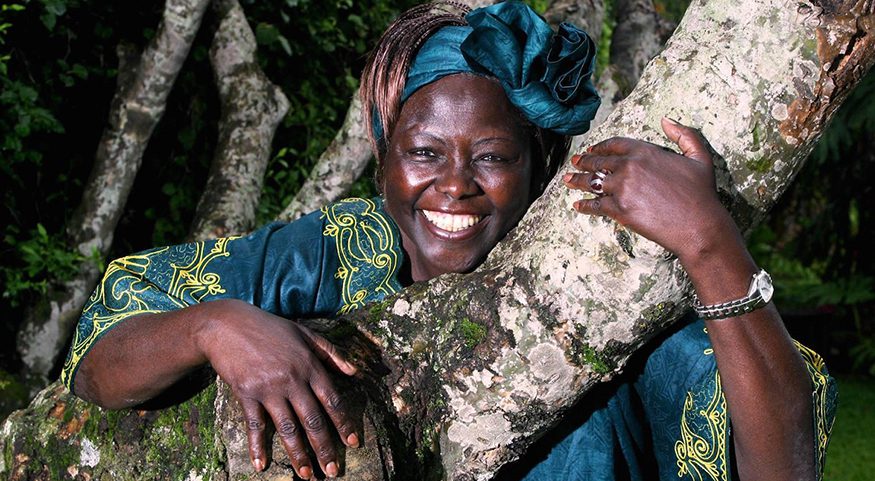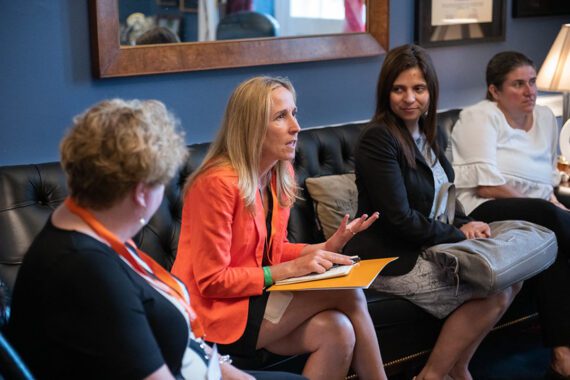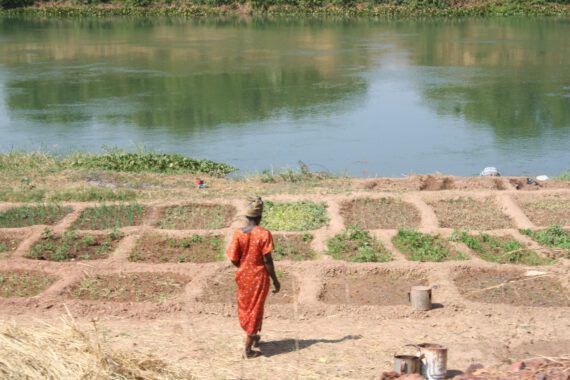By Abiola Afolayan
This Women’s History Month, we honor the work of the late Kenyan environmentalist Dr. Wangarĩ Muta Maathai, founder of the Greenbelt Movement and pioneer in sustainable agricultural practices—practices that save lives and livelihoods while protecting the environment and reducing hunger.
Years before the launch of Feed the Future (the U.S. government’s global food security initiative), Maathai was an outstanding role model, an example of how one woman’s work and agency can literally transform the landscape of a nation and empower thousands of other women and the larger community to make their own significant contributions.
Maathai and a small group of volunteers launched the Greenbelt Movement in 1977. Its goals, as an environmental nongovernmental organization, are to counter the deforestation threatening the agricultural subsistence of Kenya’s population, and to inspire and equip women to work in ecologically sustainable ways.
At the heart of the Greenbelt Movement were trees, trees planted on a wide scale. How wide a scale? Women planted more than 20 million trees in Kenya alone, on farms, in schoolyards, and in church compounds. The movement later expanded to other African countries.
For her successful efforts to mobilize women to work for sustainable development, women’s rights, and international solidarity, Dr. Maathai in 2004 became the first African woman awarded the Nobel Peace Prize.
Maathai was a beneficiary of the Kennedy Airlift, which gave promising African students an opportunity to earn degrees at colleges and universities in the United States and Canada. She was the first woman in the East and Central Africa region to earn a Ph.D. She taught at the University of Nairobi, later becoming the first female chair of the Department of Veterinary Anatomy.
Dr. Maathai worked to include people who are most often excluded from participating in decisions that affect their own lives. As a public servant, she was a member of the Parliament of Kenya and assistant minister for environment and natural resources. She is also the author of several books. Her numerous awards include the Right Livelihood Award for “converting the Kenyan ecological debate into mass action for reforestation.”
Maathai’s example showed that the key drivers of lasting change include meaningful access to the policy spaces where decisions are made, a voice at these decision-making spaces, and incorporation of these voices into actions.
Bread’s 2015 Hunger Report, When Women Flourish… We Can End Hunger, amplified this message by identifying women’s full participation in public and political life, along with reducing the burden of unpaid work and enabling women to increase their agency in their own lives, as essential to achieving gender equity. Gender equity, in turn, is essential to ending hunger.
Bread also emphasizes the importance of sustainable, productive agriculture to reducing hunger and malnutrition, particularly in rural areas. In fact, inclusive growth in the agriculture sector has been proven to be the sector of the economy most important to reducing poverty. Finally, Bread has adopted Maathai’s inclusive and empowering approach through our emphasis on the power of one person, small group, or church to win support for policies that reduce hunger—one decision maker at a time.
Investing in local women policy makers and local women farmers will enable the success of U.S. flagship anti-hunger and anti-poverty programs such as Feed the Future. Feed the Future can be transformative in scope and equip farmers and other food systems workers to produce more nutritious food for their communities. It currently operates in 12 countries. The eight in Africa include Kenya, a regional power with one of the largest, most diversified economies in East Africa. With more than 75 percent of Kenyans earning a living in agriculture, the opportunities are vast.
Another U.S. initiative is the administration’s commitment to empower 100 Women Agricultural Policy Makers in Africa through the Gender Responsive Agricultural Systems Policy (GRASP). This and other efforts will contribute to ending hunger and malnutrition, building sustainable food systems, and empowering today’s Wangarĩ Muta Maathais in Africa and around the world.
Abiola Afolayan is senior international policy advisor with Bread for the World.



